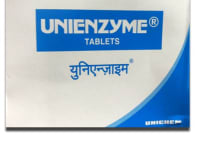NOTICE: unsafe with : Alcohol
USED FOR:
Fungal infections
Bacterial infections
COMPOSITION:
Fluconazole (150mg)
Tinidazole (1000mg)
Therapeutic Uses:
anti infectives
gastro intestinal

CAUTION
Tin Tin 150 mg/1000 mg Kit may cause symptoms such as flushing, increased heartbeat, nausea, thirst, chest pain and low blood pressure with alcohol (Disulfiram reactions).

WEIGH RISKS VS BENEFITS
Tin Tin 150 mg/1000 mg Kit is unsafe to use during pregnancy.There is positive evidence of human fetal risk, but the benefits from use in pregnant women may be acceptable despite the risk, for example in life-threatening situations. Please consult your doctor.

CAUTION
Tin Tin 150 mg/1000 mg Kit should be used with caution during lactation. Breast feeding should be held until the treatment of the mother is completed and the drug is eliminated from her body.If a single dose of Tin Tin 150 mg/1000 mg Kit is used, it is recommended to hold breastfeeding for 12-24 hours to allow the removal of the drug.

Do not drive unless you are feeling well.Tin Tin 150 mg/1000 mg Kit may make you feel drowsy or gives you problems with coordination or sensation (e.g. numbness or weakness). This may affect your driving ability.

UNSAFE
Tin Tin 150 mg/1000 mg Kit is probably unsafe to use in patients with kidney disease and should be avoided. Please consult your doctor.Caution to be advised in patients with impaired renal function.

Tin Tin 150 mg/1000 mg Kit is probably safe to use in patients with liver disease. Limited data available suggests that dose adjustment of Tin Tin 150 mg/1000 mg Kit may not be needed in these patients. Please consult your doctor.
Uses of Fluconazole
Fluconazole is used in the treatment of fungal infections.
How to use Fluconazole
Take this medicine in the dose and duration as advised by your doctor. Check the label before use.
How Tin Tin 150 mg/1000 mg Kit works
Fluconazole is an antifungal medication. It stops the growth of fungus by preventing them from forming their own protective covering which is required for their survival in the human.
Common Nausea, Abdominal pain, Skin rash, Increased liver enzymes.
Expert advice for Fluconazole
Your doctor has prescribed Fluconazole to cure your infection and improve symptoms. Do not skip any doses and finish the full course of treatment even if you feel better.
Q. What is Fluconazole used for?
Fluconazole is an antifungal drug, used for the treatment of many fungal infections like Cryptococcal meningitis (fungal infection in the brain), Coccidioidomycosis (a disease of the lungs), infections caused by Candida, found in the blood stream, body organs (e.g. heart, lungs) or urinary tract, mucosal thrush (infection affecting the lining of the mouth, throat and denture sore mouth), genital thrush – infection of the vagina or penis, skin infections like athlete's foot, ringworm, jock itch, nail infection.Fluconazole capsules can also be used to stop cryptococcal meningitis, mucosal thrush, vaginal thrush from coming back and to stop you from getting an infection caused by Candida (if your immune system is weak and not working properly).
Q. Can Fluconazole be taken with oral contraceptives (OCPs) or birth control pills?
Fluconazole has been reported to have a minor interaction when taken with estradiol (a component of OCPs), it can increase the level or effect of estradiol when given along with it. Talk to your doctor if you are taking birth control pills and you have been asked to take Fluconazole also.
Q. Can Fluconazole be taken with azithromycin?
Yes, Fluconazole can be safely taken with azithromycin. A combination kit with agents of the similar class is available for vaginal infections. Talk to your doctor before taking any antibiotics for your conditions.
Q. Can Fluconazole cause hair loss?
Hair loss is a rare side effect seen with the use of Fluconazole. Talk to your doctor if you experience hair fall while taking Fluconazole.
Q. Is Fluconazole a steroid?
Fluconazole is not a steroid. Fluconazole belongs to a group of medicines called antifungals.
Q. Is Fluconazole an antibiotic?
Fluconazole is an antibiotic. It is an antifungal and is used to treat infections caused by fungi.
Q. Is Fluconazole safe?
Fluconazole is safe if taken for prescribed duration in prescribed doses as advised by your doctor.
Q. Is Fluconazole fungistatic or fungicidal?
Fluconazole is primarily fungistatic (inhibits the growth of fungus), however it may be fungicidal (kills fungus) against certain organisms in a dose-dependent manner, specifically Cryptococcus.
Q. Is Fluconazole over the counter (OTC)?
Fluconazole is not an over the counter (OTC) product. It is available only when prescribed by your doctor.
Q. Can I take Fluconazole with ciprofloxacin?
Fluconazole can be taken with ciprofloxacin. No drug-drug interactions have been reported between the two. However, interactions can occur. Please consult your doctor before taking the two medicines together.
Q. Can I take Fluconazole with metronidazole?
Fluconazole can be taken with metronidazole. No drug-drug interactions have been reported between the two. However, interactions can occur. Please consult your doctor before taking the two medicines together.
Q. Can I take Fluconazole with probiotics?
Fluconazole can be taken with probiotics. No drug-drug interactions have been reported between the two. However, interactions can occur. Please consult your doctor before taking the two medicines together.
Q. Can I take Fluconazole with clarithromycin?
Clarithromycin and Fluconazole both increase QT interval (abnormal heart rate). It can increase the level of clarithromycin by decreasing its breakdown, further increasing the chances of an abnormal heart rhythm. Please consult your doctor before taking the two medicines together.
Q. Can I take Fluconazole with omeprazole?
Fluconazole can increase the level or effect of omeprazole by decreasing its breakdown (metabolism). Please consult your doctor before taking the two medicines together.
Q. Can I take Fluconazole with citalopram?
Fluconazole can increase the level or effect of citalopram by decreasing its breakdown (metabolism). Please consult your doctor before taking the two medicines together.
Q. Can I take Fluconazole with cetirizine?
Fluconazole can be taken with cetirizine. No drug-drug interactions have been reported between the two. However, interactions can occur. Please consult your doctor before taking the two medicines together.
Q. Can I take Fluconazole with erythromycin?
Use of Fluconazole and erythromycin at the same time has the potential to increase the risk of cardiotoxicity (harmful to heart) and consequently sudden heart death. Co-administration of Fluconazole and erythromycin is not recommended at all.
Q. Can I take Fluconazole with nitrofurantoin?
Fluconazole can be taken with nitrofurantoin. No drug-drug interactions have been reported between the two. However, interactions can occur. Please consult your doctor before taking the two medicines together.
Q. Does Fluconazole work?
Fluconazole works if taken for the right indication for a prescribed duration in prescribed doses as advised by your doctor.
Q. Does Fluconazole treat bacterial vaginosis?
Fluconazole does not treat bacterial vaginosis as it is not active against any bacteria. Fluconazole is used to treat infection of the vagina caused by Candida (a fungal infection). If you think you are suffering from bacterial vaginosis, please consult your doctor as treatment should be started after the diagnosis of your infection (whether it is fungal or bacterial).
Q. Does Fluconazole treat urinary tract infection (UTI)?
Fluconazole is used to treat urinary tract infection (UTI) caused by Candida. UTI can be caused by bacteria also. If you are suffering from UTI, please consult your doctor as the cause of infection (fungal or bacterial or other) needs to be identified before the start of any treatment.
Q. Does Fluconazole make you tired?
Fluconazole can make you feel tired. Please consult your doctor if you experience excessive tiredness while taking Fluconazole as it could be a sign of underlying liver problem. Fluconazole can affect your liver.
Q. Does Fluconazole contain penicillin?
Fluconazole does not contain penicillin. Fluconazole belongs to a group of medicines called antifungals.
Q. Does Fluconazole have sulfa in it?
Fluconazole does not contain sulfur. Fluconazole belongs to a group of medicines called antifungals.
Q. Does Fluconazole treat chlamydia?
Fluconazole does not treat Chlamydia. Fluconazole is used for the treatment of fungal infections.
Q. Can I take Fluconazole for yeast infection?
Fluconazole is used to treat infections caused by fungi and can be used to help you from getting a candidal (yeast) infection. If you think you are suffering from a yeast infection, please consult your doctor as it requires a proper diagnosis before the start of any therapy.
Uses of Tinidazole
Tinidazole is used in the treatment of bacterial infections and parasitic infections.It is used in infections of the brain, reproductive system, gastrointestinal tract, skin, vagina, and other areas of the body.
How to use Tinidazole
Take this medicine in the dose and duration as advised by your doctor. Check the label before use.
How Tin Tin 150 mg/1000 mg Kit works
Tinidazole is an antibiotic. It kills the bacteria and other microorganisms that cause infections by damaging the DNA.
Common Nausea, Headache, Dryness in mouth, Metallic taste.
Expert advice for Tinidazole
Always take the complete course of treatment, as advised by your doctor even if you feel better. It may cause side effects like nausea, stomach upset, and a metallic taste in the mouth. If you are using Tinidazole in a high dose or for a prolonged time, there is a risk of more side effects, like nerve damage. You should not drink alcohol during or for 48 hours after treatment. You may develop nausea, vomiting, flushing and headache if you take it together. Inform your doctor if you have a liver disease. Your dose may need to be adjusted in severe liver disease.
Q. Is Tinidazole or Fasigyn an antibiotic/sulfa drug?
Tinidazole is an antibiotic/anti-protozoal/anti-amoebic drug. It is not a sulfa drug
Q. Is Tinidazole available or sold over the counter?
No. Tinidazole is a prescription drug. It is not available or sold over the counter
Q. Is tinidazole the same as metronidazole/Flagyl?
Tinidazole is different from metronidazole (also called as Flagyl). However, both of them belong to the same class of drugs
Q. Is Tinidazole/Fasigyn safe?
Yes. Tinidazole is relatively safe if used as recommended. In case of any side-effects, consult your doctor
Q. What are Tiniba and Fasigyn used for?
Tiniba and Fasigyn are brand names of tinidazole available in the market. They are used for the same indications as tinidazole
Q. Can I take tinidazole with fluconazole/Tylenol/ibuprofen?
Tinidazole can be taken with fluconazole/Tylenol (paracetamol)/ibuprofen only if prescribed by your doctor
Q. Does Tinidazole cure bacterial vaginosis and UTI?
Tinidazole is effective in the treatment of bacterial vaginosis. But it is not used for treatment of UTI
Q. Does Tinidazole cause yeast infections/diarrhea/cancer?
Prolonged use of Tinidazole may cause candida or yeast infections. There is no evidence of Tinidazole causing cancer. If you experience any such symptoms, please consult your doctor
Q. Does Tinidazole treat Chlamydial or urinary tract infections?
Yes. Tinidazole is used to treat Chlamydial infections, but is not effective for treating a urinary tract infection
Q. Does Tinidazole affect birth control?
There is no evidence of Tinidazole affecting birth control. Please consult your doctor to confirm whether you require a secondary birth control measure while taking Tinidazole.
Torrent Pharmaceuticals Ltd
₹18.29/Kit Out of stock


 Tin Tin 150 mg/1000 mg Kit
Tin Tin 150 mg/1000 mg Kit  Bookmark
Bookmark





















